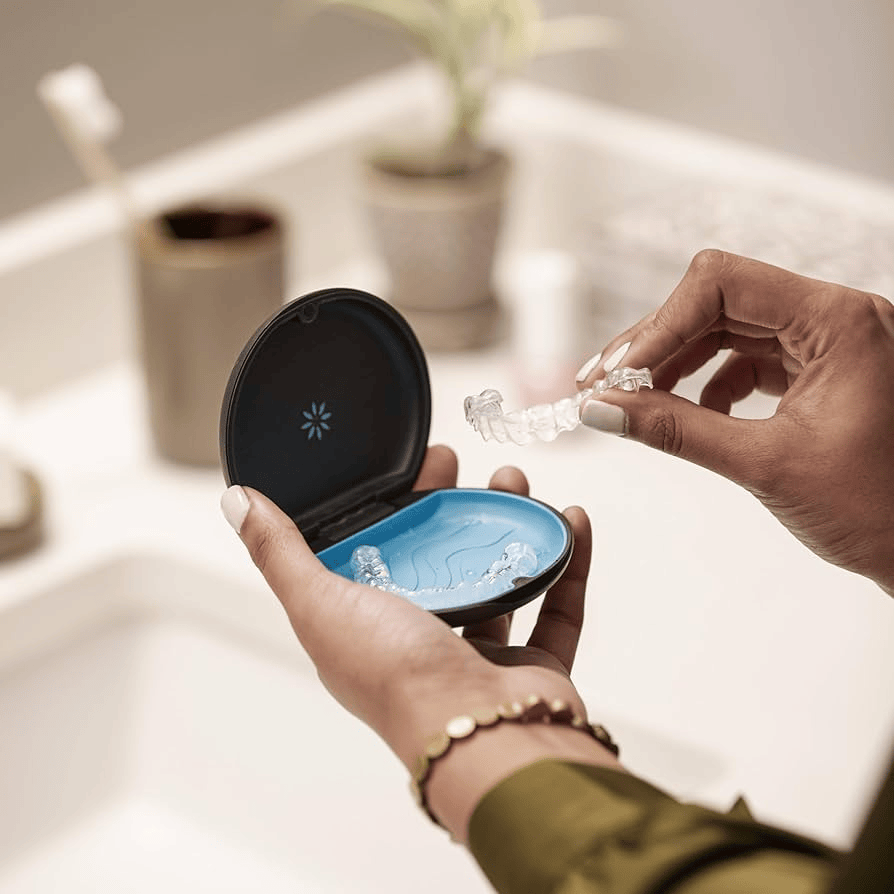Dental assisting is one of the fastest-growing allied health professions, offering stable income, hands-on work, and opportunities for career advancement with minimal entry barriers. Whether you're entering the workforce for the first time or exploring a career change, this guide covers how to become a dental assistant, what credentials are required, and what employers are looking for in entry-level applicants.
Table of contents
Landing the Job: What Employers Are Looking For
Top Traits That Make Entry-Level Dental Assistants Stand Out
While many applicants focus on certifications and education, dental office managers also evaluate personal attributes and behavioral qualities. Entry-level assistants who understand the day-to-day demands of a dental clinic—especially in a patient-facing role—are more likely to be hired.
Key traits that employers consistently value:
Reliability and punctuality in clinical environments
Willingness to learn and take feedback during onboarding
Confidence in patient interactions, especially with nervous or pediatric patients
How To Be a Dental Assistant
How Do You Become a Dental Assistant?
The most common path to becoming a dental assistant involves completing a certificate or diploma program accredited by the Commission on Dental Accreditation (CODA) or a similar state-recognized provider. These programs typically last 9–12 months and include coursework in anatomy, infection control, chairside assisting, and radiography.

Start a Dental Assistant Career as Your First Job
Most dental assistant programs require either a high school diploma or GED. However, some entry-level positions offer on-the-job training with no formal schooling, especially in smaller or general dental practices. These roles may involve sterilization, room setup, or assisting during basic exams.

Do You Need A GED For Dental Assistant Careers?
Dental assistants don’t always need a college degree to start—but most employers do expect a high school diploma or GED. Entry-level roles often provide on-the-job training, and some states allow new hires to assist without formal certification. However, advancing into clinical or specialty tasks may require additional coursework, radiography credentials, or state-recognized licensure.
How to Become a Registered Dental Assistant
Some states allow dental assistants to work without formal credentials, provided they receive on-site training. However, certain tasks (like taking x-rays or applying sealants) require state-specific certifications such as an RDA (Registered Dental Assistant) or proof of radiography competency.
Dental Assistant Job Requirements by State
Each state has its own scope-of-practice laws and certification requirements. Be sure to check local regulations via your state’s dental board. Many states also accept DANB (Dental Assisting National Board) credentials as proof of eligibility.

Dental Assistant Entry Level Jobs
Can You Get a Dental Assistant Job With No Experience?
Yes. Many dental offices are open to hiring assistants with no prior experience, especially for entry-level dental assistant jobs that involve sterilization, chart prep, and room turnover. These roles often include paid training and may evolve into full chairside responsibilities over time.
What Is the Dental Assistant Onboarding and Work Environment Like?
The dental assistant work environment is clinical, fast-paced, and patient-facing. Entry-level assistants may support multiple dentists or hygienists in a single day, requiring adaptability, soft skills, and attention to detail.
Dental Assistant Appearance and Soft Skills
Can I Be a Dental Assistant With Bad Teeth?
Yes. Dental assisting is a skills-based profession, not an aesthetic one. Employers prioritize communication, clinical competency, and dependability over cosmetic appearance. That said, maintaining good oral hygiene shows professionalism and helps build patient trust.
What Soft Skills Do Dental Assistants Need?
Empathy, organization, and the ability to stay calm under pressure are some of the top soft skills valued in dental assistants. Since many patients experience dental anxiety, your interpersonal approach can have a big impact on their visit.
Dental Assistant Career Advancement, Mentorship and Externships
With additional certifications and experience, dental assistants can advance into clinical specialties, administrative roles, or transition into hygiene or practice management.
The Career Advancement for a Dental Assistant:
- Clinical specialization: EFDA (Expanded Function Dental Assistant), orthodontic assistant, oral surgery assistant
Certifications: DANB Certified Dental Assistant (CDA), radiology, sealant, nitrous oxide monitoring
Administrative roles: Treatment coordinator, scheduling lead, office manager
Education: Transition into dental hygiene programs or instructor roles
Do Dental Assistants Get Mentorship and Onboarding?
Many practices now provide structured onboarding and mentorship for dental assistants, especially those new to the field. Some employers also partner with externship programs to support clinical experience before formal hiring.
Checklist for Starting a Dental Assistant Career
If you're preparing to apply for your first dental assistant role, having a structured plan can increase your chances of landing a position. Whether you're enrolling in a formal program or applying directly to offices hiring entry-level staff, this checklist can guide your next steps.
Dental Assistant Career Starter Checklist:
Complete a high school diploma or obtain a GED
Research your state’s dental assistant certification or licensing requirements
Enroll in an accredited dental assistant training program or pursue on-the-job training
Prepare a resume that highlights transferable skills and soft skills (e.g., communication, attention to detail, EHR experience)
Taking these steps shows dental employers that you're serious about entering the field and prepared to meet clinical expectations.
What Entry-Level Dental Assistants Do On the Job
For those just entering the profession, most dental assistant roles begin with clinical support and patient-facing responsibilities. While advanced tasks may require certification, many offices train new hires to assist with room prep, chairside support, and patient communication.
Clinical Room Turnover and Prep
New dental assistants are often responsible for maintaining a smooth patient flow by preparing and resetting treatment rooms between appointments.
Tasks include:
Disinfecting operatory surfaces and changing barriers
Restocking materials like gauze, suction tips, and burs
Setting up trays with instruments based on procedure type
Reviewing daily schedules to anticipate supply needs
Patient Interaction and Management
Your communication with patients will shape their overall experience. Many offices train new assistants on how to reduce anxiety and build rapport during visits.
Tasks include:
Escorting patients to the operatory and reviewing medical history
Providing reassurance before procedures and explaining next steps
Answering questions about home care or post-op instructions
Notifying providers when patients are seated and ready
How to get a job as a dental assistant with no experience?
It’s possible to get hired as a dental assistant even without prior experience if you have a high school diploma and apply to offices that offer on-the-job training. The specific duties you're allowed to perform will depend on the regulations in your state, so it’s important to check local requirements before applying.
What is a step up from dental assistant?
For those looking to grow beyond their current dental assisting role, becoming a dental hygienist is a common progression. Dental hygienists are licensed professionals who focus on preventive oral health care and typically take on greater responsibility within a clinical setting.
Can you live off as a dental assistant?
Dental Assistants usually earn higher wages than Certified Nursing Assistants (CNAs). That said, both roles are in high demand, and training programs for each are widely available through vocational schools, community colleges, and online platforms.
Who gets paid more CNA or dental assistant?
Dental Assistants usually earn higher wages than Certified Nursing Assistants (CNAs). That said, both roles are in high demand, and training programs for each are widely available through vocational schools, community colleges, and online platforms.
How do I move up as a dental assistant?
There are several ways to grow professionally as a dental assistant. You might pursue additional training to become an Expanded Functions Dental Assistant (EFDA), earn certification through DANB, or specialize by becoming an oral surgery assistant with credentials like the DAANCE certification. Joining or starting a professional study group can also expand your network and knowledge base.
Conclusion
Starting a career as a dental assistant doesn’t require a four-year degree—just commitment, clinical curiosity, and a willingness to learn. Whether you're pursuing certification or entering through an entry-level route, there are multiple paths into the profession and plenty of room for advancement. By understanding the requirements, environment, and growth potential, aspiring dental assistants can make informed decisions and start building a successful career in oral healthcare.






